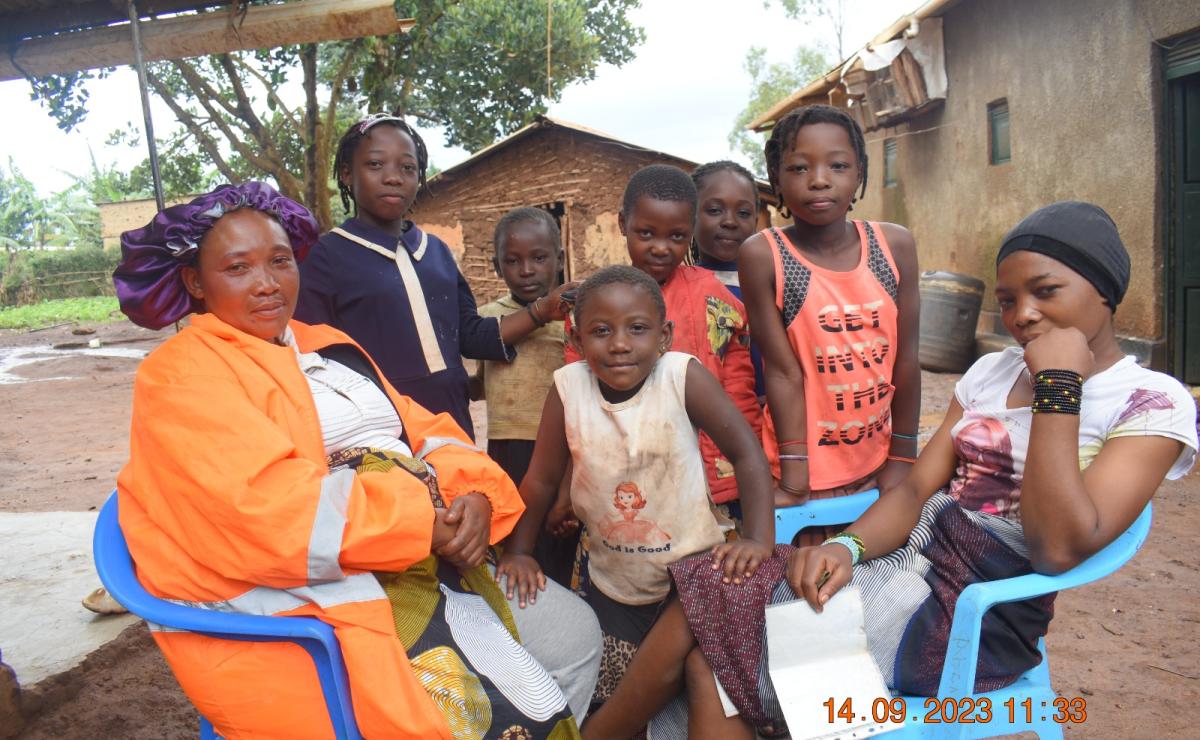Upholding the Right to Education: The Plight of Refugee Children in Uganda

In 2022, Diana Atunakanza, the eldest of nine siblings, had to drop out of school while in Primary 6 because her mother could not afford both school development fees and necessary scholastic materials. As the days unfolded without the classroom rhythm, the dreams she once held dear seemed distant, and the concept of a bright future felt like an elusive mirage. “Life had no meaning for me after I dropped out of school,” recalled Diana. As her friends eagerly embarked on their daily journey to school, Diana could only watch, knowing that her days were now spent toiling in the garden with her mother in search of sustenance.
This is the reality for many children in Uganda’s refugee settlements. Among the many hardships they face, accessing education is a formidable obstacle. In a world that recognizes education as a fundamental human right, it is disheartening to witness how this right is compromised when people are forced to flee their homes and become refugees.
Displacement disrupts the academic journey of countless students, leaving them without a stable learning environment. According to the 2023 UNHCR refugee education report, worldwide more than 7 million children in refugee settlements are not enrolled in school.
Once these children are displaced, the notion of education as a compulsory right becomes a casualty of circumstance. In the harsh reality of survival, rights are weighed against each other, with immediate necessities taking precedence. When parents are confronted with the choice between sending their children to school and ensuring they have food on the table, the latter invariably wins. For the children themselves, the appeal of education diminishes when the most basic necessity; food is not guaranteed.
Attending school on an empty stomach becomes a futile endeavor when hunger takes precedence over the pursuit of knowledge. Consequently, many young minds find themselves dropping out of school and reluctantly drawn into child labor, not out of choice, but as a desperate means to address their own fundamental needs.
The consequences are severe, as lack of education not only impedes personal growth but also hampers the potential for these young people to contribute meaningfully to their host communities in the long run.
For Diana, the pivotal moment arrived in 2023 when her household was identified, assessed, and selected to benefit from the Cash for Education in Emergencies (EiE) assistance in Kyangwaali refugee settlement. "I felt so happy when I learned of the cash assistance for education. I felt relieved and hopeful because my wish of returning to school and developing a career was going to come to pass," said Diana. The DRC-led Uganda Cash Consortium project funded by the European Union Humanitarian Aid (ECHO) supports primary and secondary refugee students who are out of school and those at risk of dropping out of school. With this much-needed support, Diana's mother utilized the money she received; 135,000 (32.74 Euro) for each child amounting to 675,000 UGX (163.71 Euro) to buy essential scholastic materials and uniforms for Diana and four of her siblings. The Cash for Education assistance not only revived Diana's educational pursuits but also rekindled the flame of hope within the family.
“I am very happy now since my children are in school with all school requirements and I do not use the money for food to pay school fees”, said Dorcus Frainin, Diana’s mother.
Diana’s dream of becoming a medical doctor, once distant, now seems within reach thanks to the EiE assistance. “I am currently waiting for my Primary Leaving Education (PLE) results and I know I will excel”, said Diana with a smile on her face.
Investing in the education of refugee children is not just an investment in their future but also a contribution to the larger goal of fostering lasting peace and independence. To truly embody this year’s theme of the International Day of Education, "Learning for Lasting Peace", let us renew our commitment to ensuring that the right to education is upheld for every child, irrespective of their

